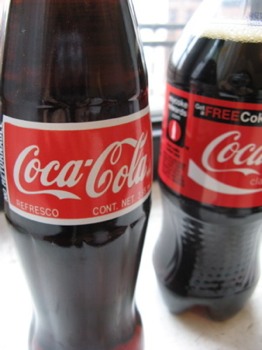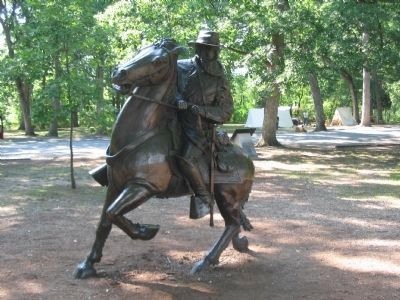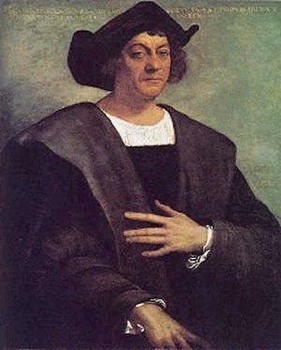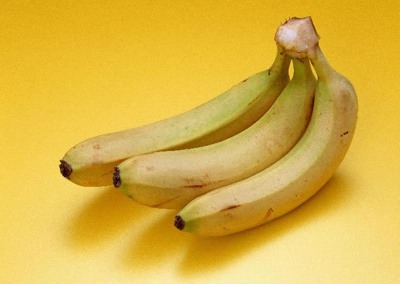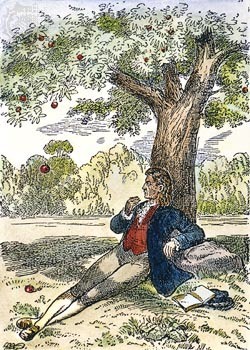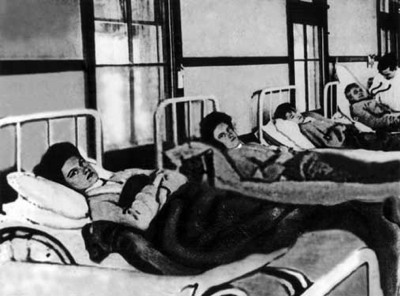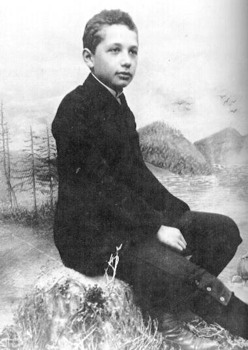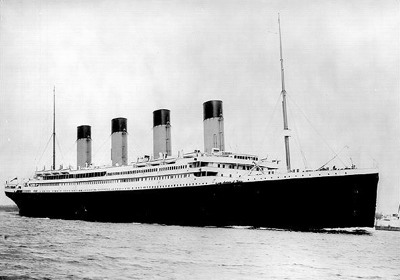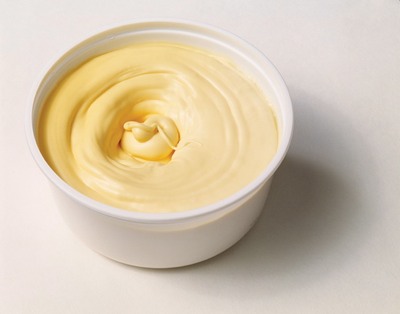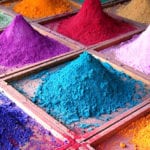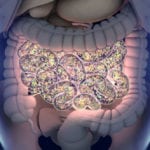 Movies and TV
Movies and TV  Movies and TV
Movies and TV  Creepy
Creepy 10 Eerie & Mysterious Ghosts of the Pacific Coast
 Weird Stuff
Weird Stuff 10 Typos That Accidentally Changed History
 History
History 10 Times Trickery Won Battles
 Technology
Technology 10 Awesome Upgrades to Common Household Items
 Misconceptions
Misconceptions 10 Hilarious (and Totally Wrong) Misconceptions About Childbirth
 Weird Stuff
Weird Stuff 10 Warning Labels That Exist Because Someone Actually Tried It
 Health
Health Ten Confounding New Inventions from the World of Biomedicine
 Creepy
Creepy 10 Death Superstitions That Will Give You the Creeps
 Movies and TV
Movies and TV 10 Movies That Get Elite Jobs Right, According to Experts
 Movies and TV
Movies and TV 10 Most Realistic Medical TV Shows of All Time
 Creepy
Creepy 10 Eerie & Mysterious Ghosts of the Pacific Coast
 Weird Stuff
Weird Stuff 10 Typos That Accidentally Changed History
Who's Behind Listverse?

Jamie Frater
Head Editor
Jamie founded Listverse due to an insatiable desire to share fascinating, obscure, and bizarre facts. He has been a guest speaker on numerous national radio and television stations and is a five time published author.
More About Us History
History 10 Times Trickery Won Battles
 Technology
Technology 10 Awesome Upgrades to Common Household Items
 Misconceptions
Misconceptions 10 Hilarious (and Totally Wrong) Misconceptions About Childbirth
 Weird Stuff
Weird Stuff 10 Warning Labels That Exist Because Someone Actually Tried It
 Health
Health Ten Confounding New Inventions from the World of Biomedicine
 Creepy
Creepy 10 Death Superstitions That Will Give You the Creeps
 Movies and TV
Movies and TV 10 Movies That Get Elite Jobs Right, According to Experts
Another 10 Fascinating Facts That Are Wrong
We put a lot of trust in our teachers – as pupils we trust that they know what they are talking about, and as parents we trust that they are educating our children. But unfortunately (and no doubt unintentionally) many of our teachers repeat the same myths that they were taught. Through the Internet we pick up the odd myth here and there and even in books and papers we see the same errors being repeated. This is the third in our “fact” debunking lists – the other two are: Top 10 Fascinating Facts That Are Wrong, and 10 More Fascinating Facts That Are Wrong. As always, be sure to add any of your favorites via the comments below.
Myth: high-fructose corn syrup (HFCS) is making us fat
Since HFCS entered the American food supply in the 1970s, and the rates of obesity started to rise about then. Consequently, many blame HFCS for the fat plague. It’s true of course that the calories HFCS contributes can be linked to the nation’s obesity problems, but its calories are no different from those in refined white sugar: the makeup of HFCS (55 percent fructose and 45 percent glucose) is close to that of white sugar (50 percent fructose and 50 percent glucose), which means that our bodies digest HFCS and sugar in very similar ways. Nutritionally speaking, the two are virtually identical.
Interesting Fact: Coca Cola produced in Mexico is still made with sugar (as opposed to corn syrup in the US), and many people claim to be able to taste the difference – refusing to buy the “inferior” American coke. Unfortunately a truly scientific blind test has not been done and the various tests online all vary widely in their conclusions.
Myth: Cell phones cause brain cancer
Lawsuits and news headlines have fueled the myth that cell phones cause cancer, particularly brain cancer, and 30 percent of Americans still believe this myth, according to the Discovery Health/Prevention telephone survey. Consumers could easily have missed the reports showing no danger from cell phones because they didn’t receive alarming front-page coverage like the original reports. A few studies suggested a link with certain rare types of brain tumors, but the consensus among well-designed population studies is that there is no consistent association between cell phone use and brain cancer. [Source]
Interesting Fact:The very first patent for a cell phone like device (wireless telephone) was granted in 1908 to Nathan B. Stubblefield who some people claim invented the radio before Tesla and Marconi. Stubblefield died as a self-imposed hermit by starving to death.
Myth: The number of hooves in the air on a statue of a horse tells us how its rider died
In my research for this list I was very surprised to come across this myth – I, like many others, had always believed it to be true! The idea is that when a statue of a horse has one foot in the air, his rider was wounded in battle but survived. If he has two hooves in the air the rider was killed, and if he has none in the air, the rider survived. While this is a myth – interestingly it does seem to apply to the majority of statues relating to Gettysburg equestrians though not James Longstreet who was not wounded but his statue does have one leg raised (pictured above).
Interesting Fact:A statue of a horse with a rider is called an equestrian statue – which is derived from the latin “eques” for Knight and “equus” for horse. A statue of a horse is called an “equine statue”.
Myth: Christopher Columbus discovered that the world was round
This is a very old myth that is surprisingly believed by millions of people. What we are told is that the Genoese Columbus’ peers doomed his trip to failure because they thought he would fall off the edge of the earth. Now – this was in the 1490s but man has known the earth was round since the idea was first put forth by Pythagorus 2,000 years before Spain even existed. Columbus did fail to reach his original destination, but in so doing he discovered the Americas. Not a bad end to a failed journey really. The round earth theory was so well established that the navigational methods at the time were all based on the fact that the earth was round.
Interesting Fact: At the age of 53, Columbus returned to Spain from the Americas and was promptly arrested with his two brothers for the atrocities he had committed. They remained in jail for six weeks before the King finally released them and restored their wealth and property. Columbus believed that his explorations to the New World would result in the beginning of the Last Judgement of man.
Myth: In ten years there will be no bananas left
There is some basis in truth to this myth (as is often the case) – there is a disease (fusarium wilt, or Panama disease) that is threatening bananas in some Asian countries and it is the Banana most Americans are familiar with (the Cavendish banana) but it is not likely to wipe out the entire world’s stock of bananas – or even the Cavendish banana as it has not infected some of the larger exporting farms. Furthermore, the cavendish is only one of roughly 300 types of bananas that are available and good for human consumption.
Interesting Fact: Bananas don’t grow on trees – the plant that produces the banana is actually a herb.
Myth: Newton devised his universal law of gravity when an apple fell on his head from the tree under which he was sitting
It is always exciting to think of a great discovery happening in the blink of an eye due to a coincidental event – we consider that if it were not for the right person being in the right place at the right time, man would have lost an incredibly significant piece of knowledge. For this reason people have clung to the idea that Newton devised his universal law of gravity because of an apple hitting him on the head. But in fact the first mention of an apple in relation to Newton came 60 years after his death: “Whilst he was musing in a garden it came into his thought that the power of gravity (which brought an apple from the tree to the ground) was not limited to a certain distance from the earth but that this power must extend much further.” (John Conduitt)
Interesting Fact: Though he is better known for his love of science, the Bible was Sir Isaac Newton’s greatest passion. He devoted more time to the study of Scripture than to science, and he said, “I have a fundamental belief in the Bible as the Word of God, written by those who were inspired. I study the Bible daily.” He spent a great deal of time trying to discover hidden messages within the Bible. [Source]
Myth: Typhoid Mary, the most dangerous woman in America, killed hundreds (if not thousands) by infecting them with typhoid
The story is Typhoid Mary is relatively well known and it certainly is true that she (Mary Mallon) carried Typhoid fever without catching it herself. It is also true that she caused human deaths as a consequence. What is not true is the enormity of the carnage she left behind her. In fact, Mary (who worked as a cook) caused 30 – 53 (different sources cite different numbers) people to catch Typhoid, but only 3 of those people died. When it was first discovered that Mary was the cause of these people becoming ill, she was quarantined. This was for a short time only as it was felt that it was unfair to quarantine her as others in a similar situation were not. Mary was allowed to leave on the condition that she stop working as a cook. She accepted the condition but unable to get a job paying as well as cooking, she took on a false name and began working at a hospital as a cook. She caused 25 people there to become sick and one died. For this reason she was arrested and put in quarantine until she died 18 years later. She is pictured above in a bed during her first quarantine.
Interesting Fact: Typhoid is spread by the salmonella typhi pathogen which would normally be killed by the heat of cooking – but one of Mary’s specialty dishes (that was frequently requested by diners) was her peach icecream. Mary’s lack of hygiene when using the toilet enabled the bacteria to transfer from feces to her hands.
Myth: Einstein failed math at school
This is a surprisingly old error which everyone seems to believe. Its origins seem to be a 1935 article in the Ripley’s Believe it or not magazine in which the myth first appears in print under the heading “Greatest living mathematician failed in mathematics.” Many failing students probably take heart in the myth thinking that there may be hope for them if Einstein could flunk math and still become a genius, but unfortunately for them, Einstein showed genius from a very young age – including in the field of mathematics. When he was shown the article from the magazine, Einstein laughed and said: “I never failed in mathematics. Before I was fifteen I had mastered differential and integral calculus.”
Interesting Fact: In 1905, during his spare time, Einstein produced four papers that upended physics. The first showed that light could be conceived as particles as well as waves. The second proved the existence of atoms and molecules. The third, the special theory of relativity, said that there was no such thing as absolute time or space. And the fourth noted an equivalence between energy and mass described by the most famous equation in all of physics, E=mc^2. [Source]
Myth: The Titanic was the first ship to send out the SOS signal
Initially the Titanic sent out the CQD signal (standing for “All stations: distress”) but Britain had recently signed up to the new standard of SOS so one of the crew suggested that it be used as well: “Send SOS; it’s the new call, and besides, this may be your last chance to send it!” It certainly was new to British ships, but the standard had been in use for some years prior and there is even a newspaper article from 1909 which describes its use by an American ship, the Arapahoe.
Interesting Fact: Contrary to popular belief, SOS does not stand for anything. Some believe it means “save our souls” or “send out ships” but in fact, the signal was chosen because it was so simple to send that a person who was unfamiliar with radio equipment could send it in the case of an emergency (… / – – – / … SOS in Morse Code – is far easier than the previous distress signal of CQD: -.-. / – -.- / -..).
Myth: Margarine is 1 molecule away from plastic
Americans eat four times as much margarine as butter every year which seems surprising considering so many people believe this little myth about the chemical spread. While much of the negative stuff we hear about margarine is true, this particular myth is not. Margarine is made by heating vegetable oil and infusing it with hydrogen – in other words saturating it to a point that it remains hard at room temperature. It is then mixed with other ingredients to give a white lump that resembles fat. Yellow food coloring is added and voila – we have margarine. There is not one molecule of anything that you could add to margarine to turn it into plastic.
Interesting Fact: Margarine was invented because Emperor Louis Napoleon III of France offered a prize in 1869 for anyone that could come up with a cheap butter alternative for the army and the lower classes. Hippolyte Mège-Mouriés (a French chemist) won the prize with his oleomargarine. Governments around the world tried to stop people from using margarine by putting heavy taxes on it and banning its coloring. Believe it or not, it is still illegal to sell butter-colored margarine in Missouri [source] and it was illegal in Quebec until July 2008 [source].
